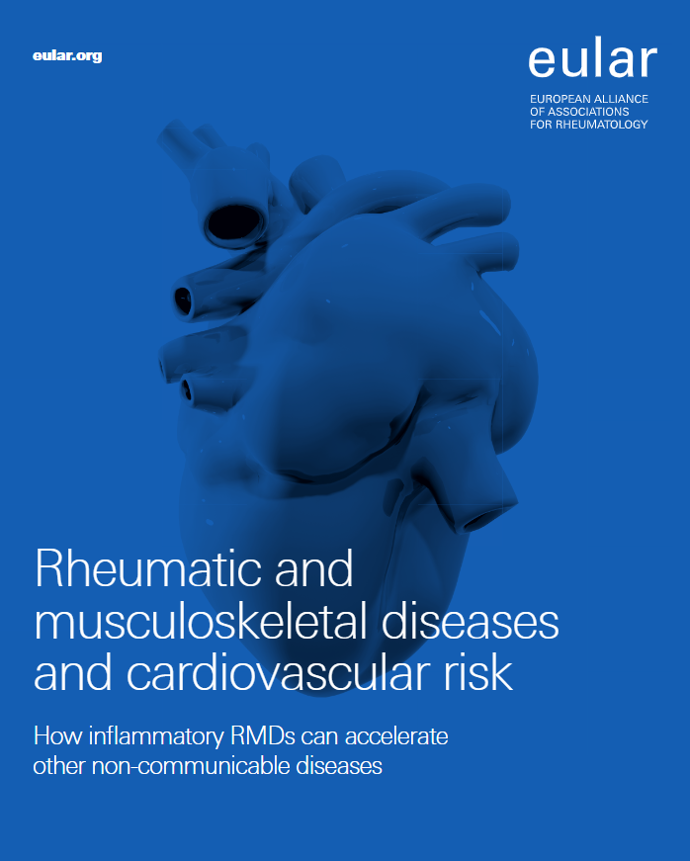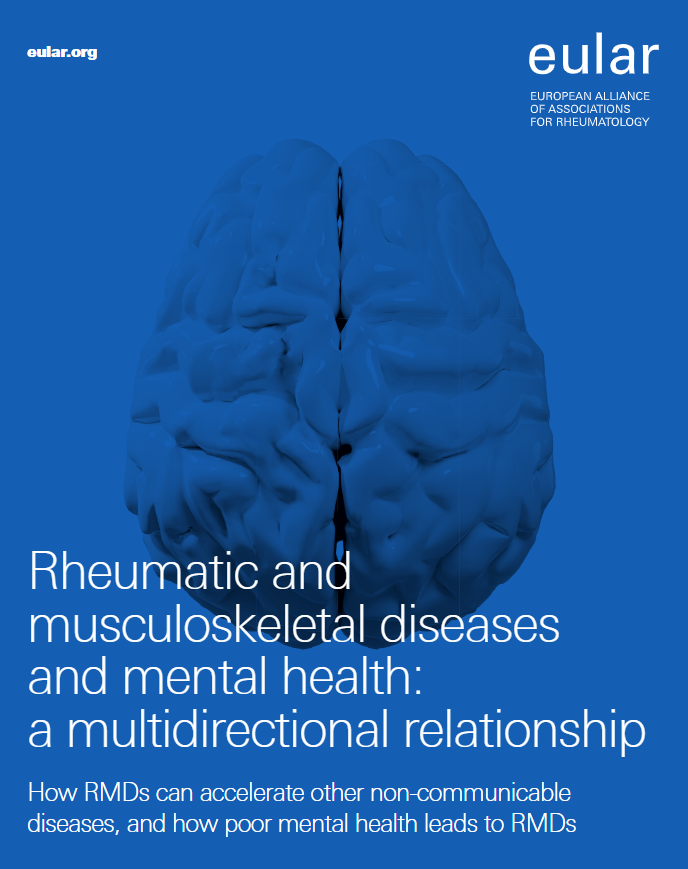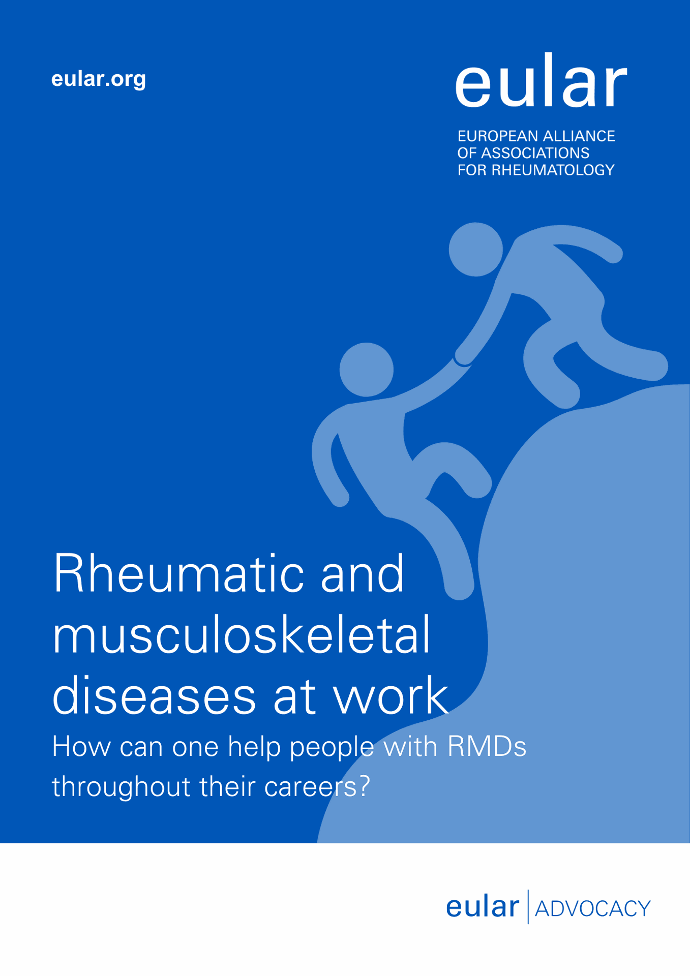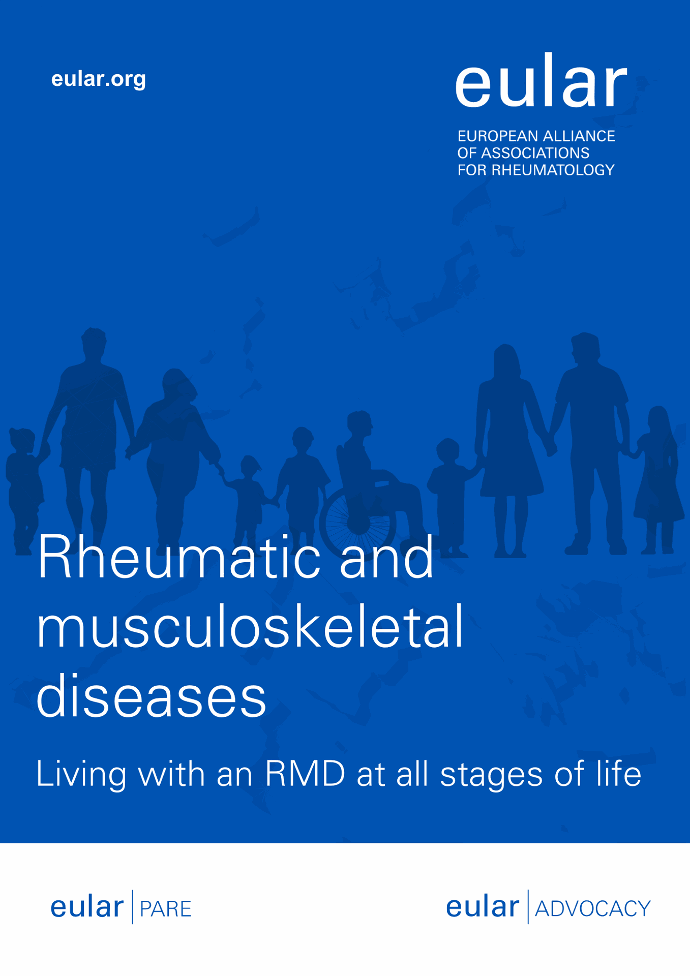EULAR Advocacy Activities and Materials
In order to persuade governmental and EU key decision-makers supporting the European rheumatology community, EULAR Advocacy develops evidence-based materials about RMDs and communicates its position on key policies and legislation being discussed.
Multimedia brochures
EULAR Advocacy started producing brochures that can be used to highlight the importance of RMDs. The goal of the brochures is to have clear messages for European policymakers and audiences outside rheumatology. Currently, they contain information on different RMDs, their treatments and diagnosis, what rheumatologists do, what are the problems of people with RMDs as a whole and those with specific diseases, the unmet needs, and the importance of rheumatology to wider medical research.
The first three brochures show the links between RMDs and non-communicable diseases (NCDs) that are well known to and need to be taken into account by policymakers.
What does it mean to live with an RMD?
Currently, there is no cure for most of the RMDs, diagnosis is often delayed, and treatment should be adhered to for many years if not lifelong. This means regular check-ups with the rheumatologist and related team, in more severe cases hospital stays or surgery followed by rehabilitation and physiotherapy all taking considerable time and energy and leading to lots of uncertainty about the future for the individual.
As a result, RMDs have a huge impact on the quality of life of those affected. Without proper access to diagnosis, treatment, rehabilitation and social services, people with RMDs can face significant barriers in education, work life, relationships and founding a family, social life and daily activities. All of this is accompanied by chronic pain, side effects of medication, setbacks, fear, loneliness, depression and fatigue that influence the life not only of the person with the RMD but also of family members and caregivers.
RheumaMap 2019: Making the case for unmet needs in rheumatology
Rheumatic and musculoskeletal diseases (RMDs) are among the most prevalent, disabling and burdensome, non- communicable diseases in Europe eliciting high costs for European healthcare and social security budgets. The causes of more than 200 RMDs (including a number of rare diseases) are unknown. Although there are still no cures current treatments allow for a significant improvement in clinical manifestations and disability prevention.
To read the 2019 version of the RheumaMap, download the document here
Read about previous versions of the RheumaMap
View the 2017 press release:
Press Release
View the RheumaMap 2017 summary here:
RheumaMap Summary
View the RheumaMap 2017 full version here:
RheumaMap Full Version
Related Information
EULAR Advocacy Newsletter
EULAR is committed to bringing rheumatic and musculoskeletal diseases (RMDs) onto the EU's agenda. Sign up to the EULAR Advocacy newsletter to keep up with the changes that our organisation is working towards in the area of policy and legislation to help achieve better social and economic outcomes for the many millions of people affected by these chronic and debilitating diseases across Europe.
About EULAR Advocacy
EU Advocacy is a key activity for a European umbrella organisation like the European Alliance of Associations for Rheumatology (EULAR).
EULAR Advocacy Partnerships
EULAR is committed to partner with organisations and scientific medical societies at a EU and national level towards improving research funding, social policy legislation and quality of care; assisting advocacy actions on the national and international levels around rheumatic and musculoskeletal diseases (RMDs).
EULAR Policy Statements
As part of its advocacy activities, EULAR produces and adopts a number of documents and declarations that are used to express EULAR’s position and/or demands on different policy issues.
EU Parliament Interest Group on RMDs
The European Parliament Interest Group on Rheumatic and Musculoskeletal Diseases (RMDs) was created in 2009 on the occasion of World Arthritis Day (12 October) and was re-established during the current parliamentary term (2014-2019).
Links to Other Organisations
Partnerships that help to increase the knowledge of the organisations involved and the impact they can have on the political stage.
RMD Definition
EULAR description on Rheumatic and Musculoskeletal Diseases (RMDs)




